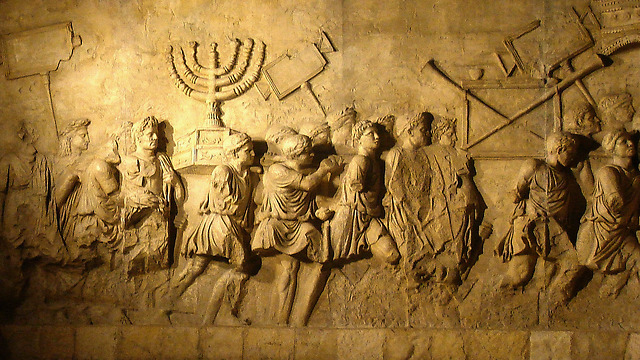
Yuli Edelstein
צילום: יואב דודקביץ'
Avoiding extremism and appreciating variety
Op-ed: This Tisha B'Av, the speaker of the Knesset calls for the nation to consider how future generations might see our taking advantage of the multitude of opinions, or failing to learn from past mistakes and dividing ourselves irreparably.
It's often said that the enemy of the "A" is the "A+." On the face of it, it's not clear why: What's wrong with a constant desire for achievement? Don't we raise our children to always reach higher and further, to try as hard as possible to raise the bar?
In general, this is good and proper. But it's also essential to know when to keep away from cases when aspiration for totality is destructive. It happens to us today more and more, when we become so entrenched in radicalized positions that lead to internal clashes and fierce hostility.
These create deep rifts in our society, and I fear that unless we hit the emergency break, we'll fall into the abyss similar to the one that brought us the destruction of the Second Temple. Then, too, it began with extremism and dogmatism, and their aftermath was disputes that turned into profound hatred and social disintegration at the heavy price of 2,000 years of exile.
Those not accustomed to reading the texts dealing with the deep circumstances of the destruction of the temple might be surprised to read the Talmudic holding that Jerusalem was destroyed because "they judged Torah law therein." That isn't a mistake: essentially, the destruction came to us because of the faulty norm of compliance with the law word for word. The entire idea of "ex gratia" was foreign to them; there were no shades of grey, just black and white. Instead of our Torah being a living Torah and being a source for guidance, the prevailing spirit was to be "by the book," without taking into consideration the special circumstances and the reality that requires broad discretion.
We beard an unbearably high price for that extremism and literalism. The Midrash illustrates this and describes how the position of Rabbi Zecharia ben Avkulos took over, which insisted on adherence to the religious law word for word—despite the clear and present danger posed to the Jews under foreign Roman rule. This stubbornness, which was expressed in the refusal to make a sacrifice from the emperor for the sake of "peace of the kingdom"—because thus it was written in Jewish law—was a symptom.
Tisha B'Av is not just a distant event, but an opportunity to look at ourselves from a comparative perspective. How would we look to an observer from outside as a collective, as a society, in another 100 or 1,000 years? What would characterize us? Would we have succeeded in taking advantage of the moment of historic desire, when we returned to consolidate Jewish sovereignty in our homeland, to create here an exemplary and supportive Israeli and Jewish society? Or would the future historian sigh deeply and mutter, "Again, the Jews haven't learned a thing from their own history"?
The range of cultures and worldviews is a blessing and not a curse. Our challenge is not allowing the multitude of opinions, which swell and strengthen in the age of social media, to divide us to sub-sects, the differences between them being unbridgeable, similar to those prevailing before the destruction of the Temple: the Pharisees, the Sadducees and the Boethusians.
Our urgent mission is to curb the raging, not to provide a place for the extreme and violent (not even a virtual one); seeing the great variety as a wealth of voices that don't lead to conflict and cacophony, but as an orchestra playing a symphony.
Yuli Edelstein (Likud) is the speaker of the Knesset.











